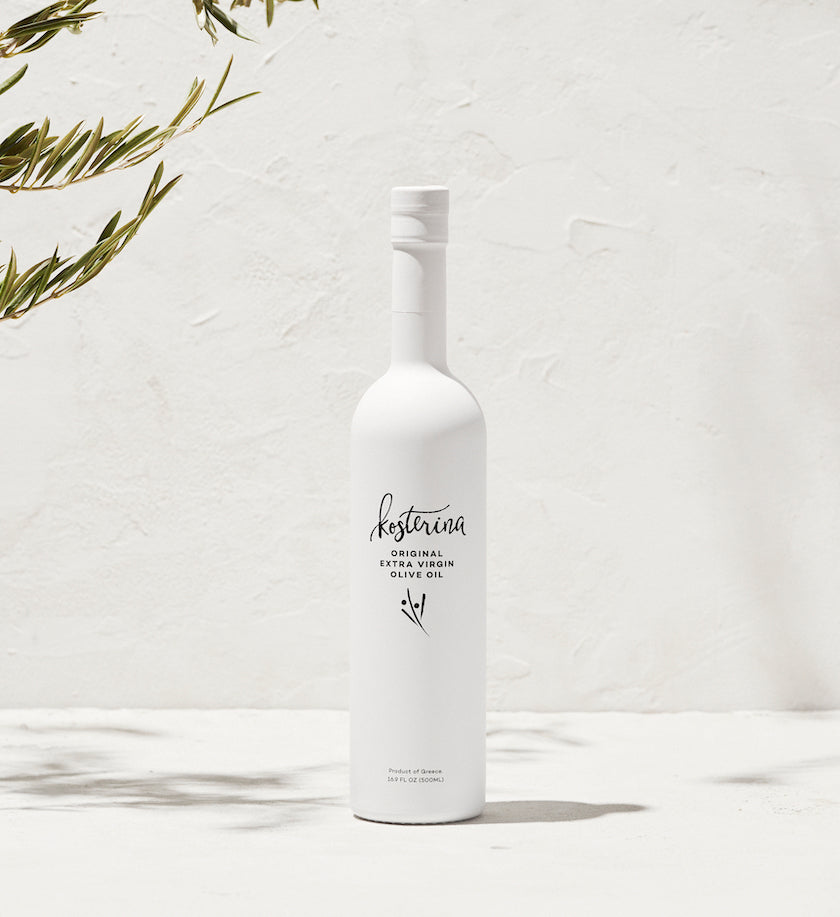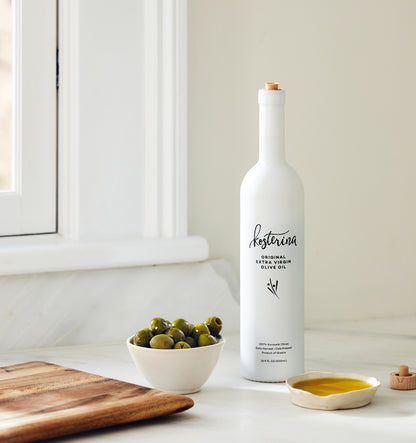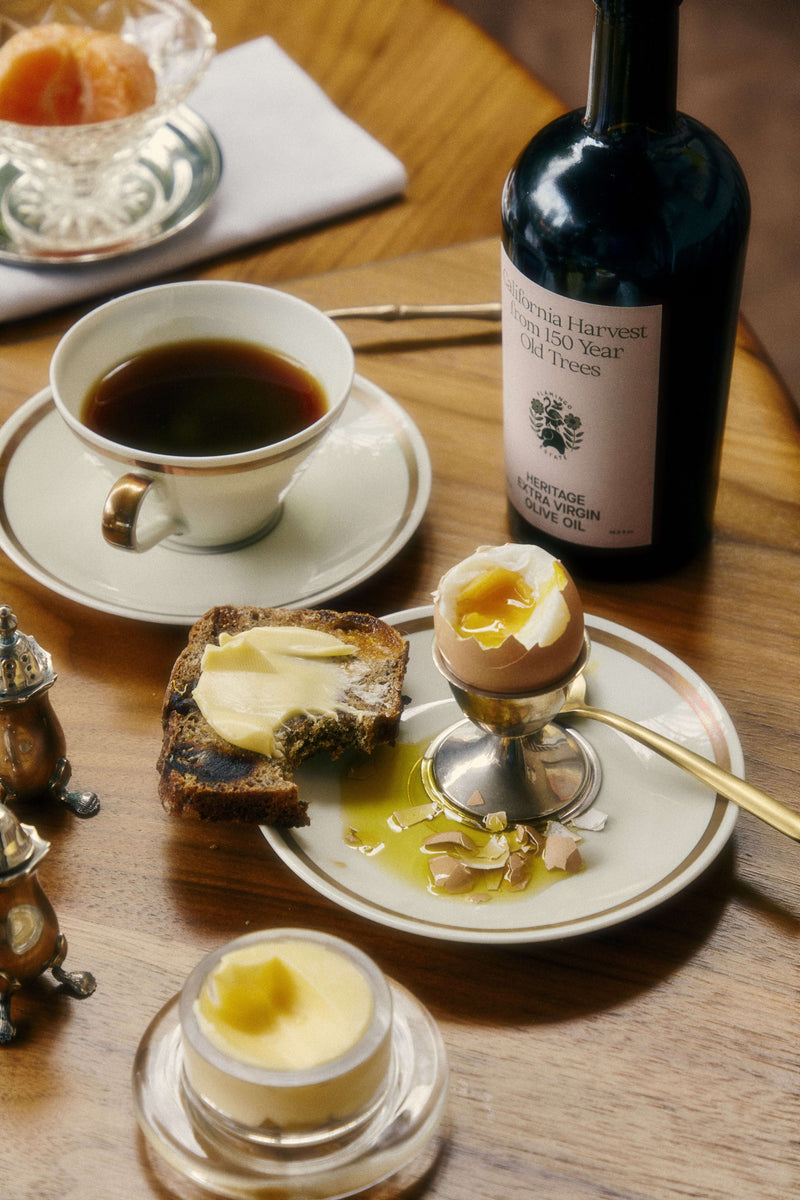Discovering the Various Kinds of Olive Oil and Their Usages, Consisting Of Additional Virgin Olive Oil
The expedition of olive oil encompasses a varied range of types, each offering culinary applications and distinctive tastes. Additional virgin olive oil, renowned for its exceptional top quality and health and wellness benefits, offers as a staple in numerous kitchens, yet it is just one facet of this complex ingredient.
What Is Olive Oil?
Originated from the fruit of the olive tree, olive oil is a staple in Mediterranean cuisine and a vital active ingredient in different culinary applications. This flexible oil is produced by pushing entire olives, leading to a liquid that differs in aroma, shade, and flavor relying on the kind of olives used, the area of growing, and the extraction process. Olive oil is mostly composed of monounsaturated fats, specifically oleic acid, which is recognized for its potential health and wellness advantages, including anti-inflammatory residential or commercial properties and cardiovascular assistance.
In enhancement to its culinary uses, olive oil has a long history of application in conventional medicine and skin care, owing to its rich antioxidant web content (extra virgin olive oil benefits). The oil is typically used in dressings, sauces, and for cooking techniques such as sautéing and roasting. Its distinctive taste account can improve the taste of numerous recipes, making it an important ingredient for both home chefs and expert chefs
Moreover, olive oil is commemorated for its role in the Mediterranean diet, which is connected with various wellness advantages. As recognition of these benefits grows, olive oil proceeds to acquire popularity worldwide as a fundamental part of a healthy way of life.
Kinds Of Olive Oil
Comprehending the various sorts of olive oil is vital for both health-conscious customers and cooking fanatics. Olive oil is classified mostly based upon its removal approach and quality, which substantially influences its aroma, health, and flavor benefits.

Light olive oil, regardless of its name, describes a lighter flavor and not lower calories. It is optimal for those seeking a more refined taste in dressings and sauces. In addition, there are flavored olive oils infused with natural herbs, flavors, or citrus, which can improve recipes without the need for extra spices.
Each sort of olive oil offers certain culinary purposes, and recognizing these differences permits consumers to make informed options that align with their food preparation styles and wellness goals.
Bonus Virgin Olive Oil
Additional virgin olive oil (EVOO) is extensively related to as the finest quality olive oil offered, popular for its rich taste and various wellness benefits. To be identified as extra virgin, the oil needs to be produced from fresh olives utilizing mechanical procedures, without making use of solvents or too much heat. This careful approach preserves the oil's all-natural tastes, antioxidants, and healthy and balanced fats, causing a product with a reduced level of acidity level of less than 0.8%.
EVOO is bountiful in monounsaturated fats, particularly oleic acid, which is linked to minimized swelling and improved heart health and wellness. It additionally consists of polyphenols, effective antioxidants that may use safety effects against persistent conditions. The taste profile of EVOO can vary substantially relying on the olive variety and region of production, varying from fruity and verdant to robust and peppery.

Culinary Use Olive Oil

In cooking, olive oil can be used for sautéing, toasting, and cooking, giving a much healthier option to butter or other fats. Its high smoke point makes it ideal for numerous cooking techniques, while its antioxidants contribute to a heart-healthy diet regimen. Showering olive oil over completed meals, such as pasta, fish, or grilled vegetables, can boost flavors and add a touch of elegance.
In addition, olive oil plays a substantial function in baking, where it can change standard fats in recipes for bread and breads, giving wetness and a subtle preference. It likewise functions as a base for instilled oils, enabling cooks to explore flavors such as garlic, natural herbs, or chili, additionally expanding its click over here cooking capacity. Overall, olive oil's convenience makes it vital in both home and professional cooking areas.
Deciding On Quality Olive Oil
When choosing quality olive oil, it's necessary to think about several crucial factors that affect the product's wellness, aroma, and taste advantages. Opt for additional virgin olive oil (EVOO), which is obtained from the initial cold pressing of olives and consists of the highest possible levels of antioxidants and helpful substances. Look for oils that are accredited by identified companies, as this frequently makes sure adherence to rigorous top quality standards.
The packaging likewise plays a considerable duty in maintaining the oil's integrity. Choose oils stored in dark glass bottles or tins to secure versus light destruction. Take notice of the harvest date; fresher oils use remarkable taste and dietary worth, so pick items that are within 18 months of their harvest.
On top of that, take into consideration the beginning of the oil. High-quality olive oils frequently come from particular regions known for their distinct flavor profiles, such as Italian, Spanish, or Greek oils. Finally, recognize the taste; a top quality olive oil should have a balance of fruity, bitter, and peppery notes, suggesting its richness and complexity. By evaluating these variables, you can guarantee you are selecting the very best olive oil for your culinary needs.
Final Thought
In summary, the expedition of different kinds of olive oil discloses unique characteristics and applications, with added virgin olive oil standing for the pinnacle of top quality because of its reduced level of acidity and high antioxidant content. Its convenience in culinary usages improves flavors in dressings, sauces, and drizzles. Recognizing the different selections of olive oil enables informed options in cooking techniques, promoting much healthier practices while enhancing the overall gastronomic experience. Quality choice remains critical for ideal advantages.
Obtained from the fruit of the olive Read More Here tree, olive oil is a staple in Mediterranean food and a key component in different cooking applications.The most common types of olive oil consist of improved olive oil, pure olive oil, and light olive oil.Extra virgin olive oil (EVOO) is widely related to as the highest possible quality olive oil offered, renowned for its abundant taste and numerous health benefits. Choose for added virgin olive oil (EVOO), which is acquired from the first cold pressing of olives and includes the greatest degrees of anti-oxidants and valuable substances.In summary, the exploration of various types of olive oil reveals distinct qualities and applications, with additional virgin olive oil representing the pinnacle of high quality due to its reduced acidity and high antioxidant material.
Comments on “Extra Virgin Olive Oil Benefits: The Natural Anti-aging Solution You've Been Searching For”